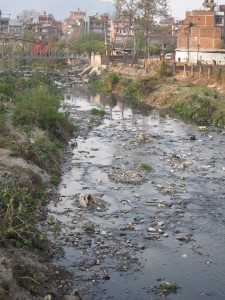by ARATI SINGH
I was born and brought up in Nepal. In my first twenty-five years of life spent in Nepal, I never found my mother sleeping beyond 3 a.m. in the morning. The reason for early waking up was water scarcity in the capital city Kathmandu. Government rations water there.
The neighborhood where I live receives water from 3 a.m. to 5 a.m. It was during these two hours my mother had to collect as much water as she could in an underground tank and some buckets so that we could take shower and use it in other household chores. The tradition still continues.
My mother has not slept beyond 3 a.m. as long as she remembers. Still we consider ourselves lucky as some of the households in my neighborhood received water only once in a week. The women from these households come to the “lucky” houses like mine early in the morning asking for water.
The situation in the hilly and mountainous parts of Nepal is worse than in the capital city. People have to travel miles to fetch a bucket full of water. People in these parts look un-showered and un-bathed. They are dirty, but they do not have choice.
On the contrary, in the plains of Nepal every year, the rivers pose threats of flood during the monsoon season. Last year we lost over 250 lives and many more are still missing. Government says the death toll might reach more than 500. The aftermath of the flood will be more devastating due to the outbreak probability of diarrhea and other water borne diseases. According to UNICEF in 2010, every year Nepal loses 40,000 children to water borne diseases and 60% of the population faces acute water-related sanitation problems.
I care about amyotrophic lateral sclerosis (ALS). Awareness on any disease, irrespective of its intensity, should be welcomed. But I am not comfortable seeing people pouring buckets of water after water in the name of spreading awareness. When I see especially Nepali doing this, all I can think about is my resilient mom, those hilly kids walking miles to the stream to get some water, and those drowned faces in the plains, who have no idea that in some part of the world people are pouring water on themselves in the name of spreading awareness.
Out of respect towards my mom, my people, who face acute water scarcity, and those who are now washed away by the water, I will not take the challenge of wasting a bucket full of water to spread awareness on certain disease.
